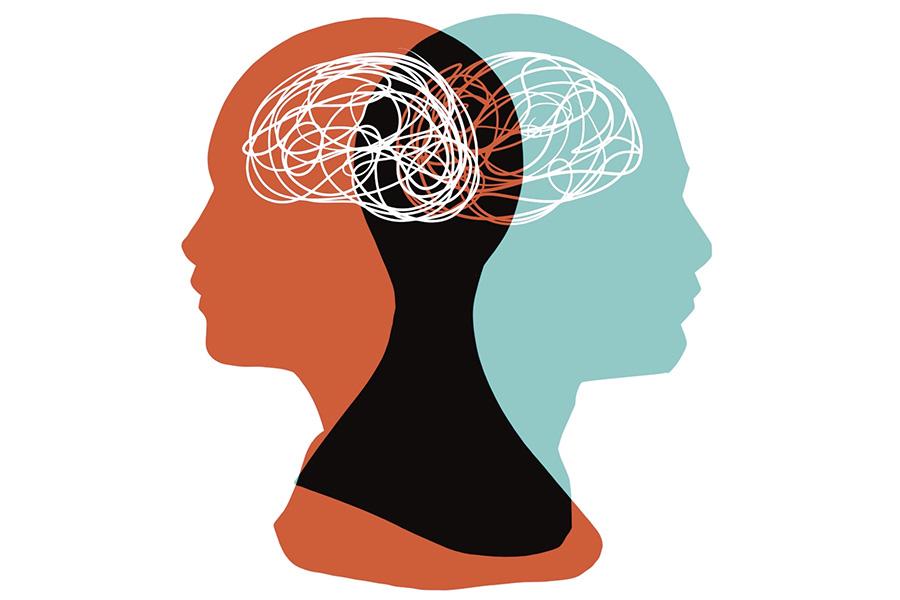The importance of mental health in winter
March 1, 2022
Winter can be a hard time of year for many people. The nights are longer, the days are colder, and there seems to be less to do. All of these things can leave someone feeling down. That is why it is so important for people to take extra care of their mental health this time of year.
As someone who struggles with mental health, especially in winter, I have found some really useful tips and resources for people who are also looking to make a positive change in their life. Of course, it is essential for people to reach out for help or counseling services if you are experiencing substantial anxiety and depression.
However, seeking a counselor can be costly and may not be practical for many students who lack financial resources. Thankfully, Madison College has an answer for this. If you are a Madison College student, you can contact the school’s counseling services at (608) 246-6076. Or, you can also go to their website at [email protected]. Here, you will find various resources for whatever it is you are going through – whether it is trauma, school stress, substance abuse, or if you just want some general extra support.
Another great resource that Madison College offers students is a subscription to Headspace. If you aren’t sure what Headspace is, it is a website that offers a variety of videos and audio segments that can help you with mindfulness, meditation, and getting a better night’s sleep. All you need to do is to create an account with your school email.
The newest asset of Madison College is the website YOU at Madison College. This site can help you set and organize different goals related to just about anything: anxiety, identity or sleep schedule, to name a few. It’s available to all students.
If you are already using these services and want something extra or you aren’t a student, I have other useful tips that will hopefully help you on your mental health journey. One thing that has been vital to me is ensuring that I carve out a bit of time in a busy schedule for some self-care. This may seem like a no-brainer but it’s not always as easy to achieve as you might think, especially if you have a very busy schedule.
One thing that is really important for mental health is getting quality sleep at night. It might sound like a no-brainer, but the key here is quality. For an optimal night’s sleep, it’s recommended that you turn off all of the lights, put your screens away a half hour before bed, skip the night cap (or alcohol), don’t eat heavy food too close to bedtime, and go to sleep at the same time every night.
Another great way to alleviate negativity is to spend time in nature. There is a reason why you see so many healing gardens at hospitals. It has been shown in numerous studies that nature and greenery have a very positive effect on people. In fact, out of everything on this list, this may be one of the best things you can do for yourself. It can also reduce blood pressure, heart rate and ease muscle tension. Studies also show nature can help with cognitive ability. While it would be fantastic to submerge yourself among trees in a forest, it’s also beneficial to take a walk in a city park or to bring plants into your home.
Another great way to increase your mental health is to volunteer. Studies show that volunteering can help with stress, sadness, and anger. This is because we perform acts of kindness to others, we can get a boost of dopamine. Also, when you are focused on other people’s problems, you don’t have time to ruminate on your own.
If you don’t think volunteering with people is your thing, try animals. In fact, being around animals is also great for mental health. Petting animals has been shown to increase serotonin levels and reduce cortisol. Furthermore, studies have shown that the purr of a cat can help labored breathing and lower blood pressure.
No longer are the days that I cringe at people who say they practice mindfulness. What I used to think was only a societal trend actually has some merit to it. That is because mindfulness is the practice of living in the present as opposed to fretting about the future or dwelling in the past, two things that I do quite often. Instead, it helps you to appreciate the little things in life and to take pleasure from day to day tasks that may otherwise seem mundane, such as eating a juicy apple, enjoying the smell of a candle, or appreciating the warmth of your home after hearing the cold winter winds howling outside.
Mindfulness goes hand to hand with gratitude – something else that is really important for mental health. It is humbling and gratifying to remind yourself of all of your life’s blessings. The more thoughts of gratitude that fill into your head, the less thoughts of self-doubt and fear will intrude.
While this isn’t an exhaustive list of all of the things that can boost mental well-being, it is a start. Some other things that may also increase your mental health are aromatherapy, prayer or spirituality, connecting with loved ones and finding ways to laugh more.
































